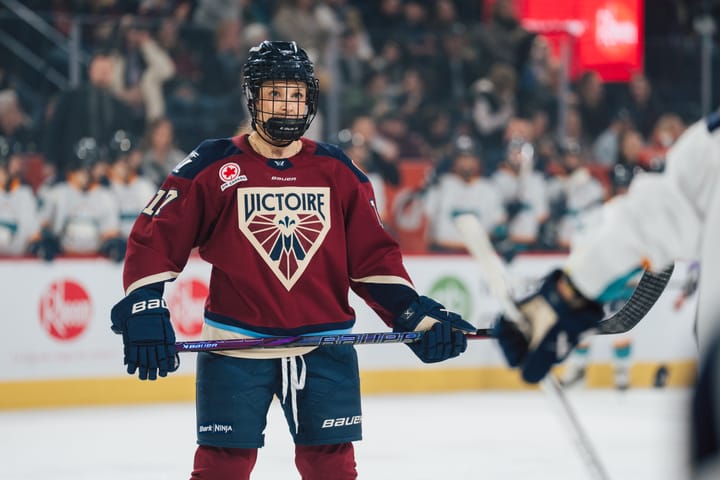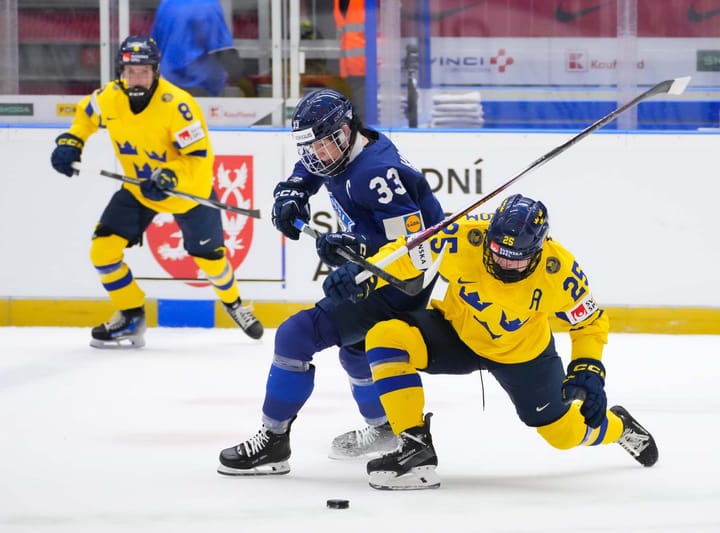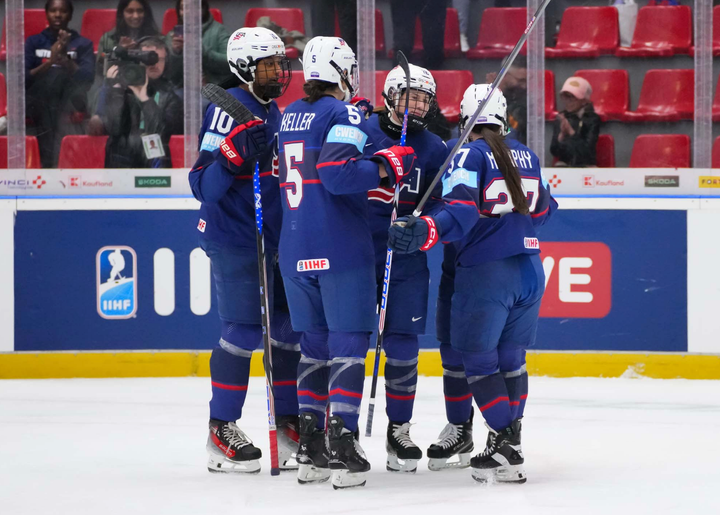World Championship struggles shine spotlight on Hockey Canada issues
They likely don’t have time to make wholesale changes for the Olympics, but results aren’t encouraging
If this is the last major competition before the Olympics for Team Canada, it certainly isn’t the most encouraging one to build momentum.
Canada finished with a record of 2-3 in their five games, ending with a heartbreaking 3-2 loss in overtime to the United States. They lost to the Americans twice, and lost to Finland for the first time at a top competition.
I have personally noticed more of a Hockey Canada presence at CWHL games, which is encouraging. The problem is that there are still inexplicable personnel decisions. I have gone in detail about Ann-Sophie Bettez (a couple of times) but the issue is beyond just her.
Mélodie Daoust is one of the most skilled forwards in the country, and a member of the 2014 Olympic team, but she was not named to the Worlds roster either. If she doesn’t make the 2018 team, she would be the youngest Canadian Olympic Team member to be dropped the next cycle.
Canada’s biggest problem is that they keep the pool of players so shallow. With the spotlight on funding players lately, you can see why they would do that. But it doesn’t have to be that way. They can keep players on stand-by without having them on the payroll. Have regional camps. Take regular looks. Update the pool.
Take another player based in Montreal. Cassandra Poudrier was part of the National Team program while she was at Cornell University. Then, she was not invited to any camps this season. If you watched Les Canadiennes play, Poudrier was a major part of their success. Her puck moving skills would compare favorably to most Canadian defenders not named Meaghan Mikkelson or Laura Fortino.
The depth of the talent pool is one thing. The selection process is another.
There are players who are part of the program who could have been better fits. And you may be surprised where I am going with this, but the issue that can be fixed starts with coaching - and I’m not talking about the current staff.
Hockey Canada has started to do a good job of grooming women into coaching. They just haven’t reaped what they have sown yet, and that will take time.
By putting resources into getting girls and women into youth coaching, they will develop coaches who will move into Pee Wee and Midget hockey, and then into university coaching, and eventually into professional coaching at the CWHL level.
They already have a program that allows players to transition into coaching that you see with Caroline Ouellette, now an assistant, and current head coach Laura Schuler, who represented Canada at the 1998 Olympics.
Only one of the five CWHL teams have a female coach. This isn’t unique to Canada - don’t get me wrong. Three of the four NWHL coaches in the United States are men, too.
But what you end up with is a network of coaching. Think of the men’s side for a moment. Hockey Canada has a pool of coaches in Midget hockey, in university hockey, in the Canadian Hockey League, in Europe and in the National Hockey League. All of these coaches see different players play for them and against them. The pool expands as the coaching network expands. Coaches discuss things.
They could even add a scouting network, and work on developing players as well as harnessing the most talented.
Having the same group of people watch the same pool of players and never re-adding people to the pool defeats the purpose. The USA has some of these issues as well, but the goal for Hockey Canada should be to beat the US. And how you do that is by using the depth of your pool to your advantage.
In Sochi and Vancouver, the difference between gold and silver was a great goaltender (Shannon Szabados) and a star player at the top of her game (Marie-Philip Poulin). Without their heroics, the American streak at the World Championships (eight of the last 10 Golds, seven of eight, and four straight) could easily extend to the Olympics.
And this was under the old American system, before more money and opportunities will be given to them.
Canada needs to change its way of thinking, and start to bring their best possible rosters. The United States will eventually win an Olympic gold, and suddenly the losses in gold medal games will add up without Canada having the Olympics to hang their hat on.
There is a lot of talent among Canadian hockey players. But systematically ignoring some of them by keeping selection camps exclusive and with the same players will not improve the results.
The same management team choosing among the same players and expecting a different result may strike gold every four years, but they won’t always have a star goaltender and the best player in the world on their side.





Comments ()